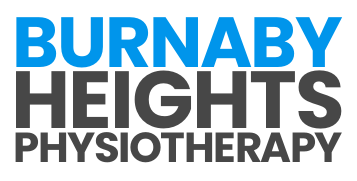
Comparing Physiotherapy and Massage Therapy: Optimal Health Strategies
September 30, 2025Find Freedom: Pelvic Floor Physiotherapy for Urinary Urgency
October 27, 2025In the world of physiotherapy, education plays a pivotal role in empowering clients to take charge of their health and recovery. Physiotherapists not only provide hands-on treatment but also arm individuals with the knowledge they need to manage their conditions effectively. In this blog, we will explore the integral role education plays in physiotherapy, the topics covered during sessions, and how you can educate yourself about your condition and treatment options. We will also delve into the tools physiotherapists use to educate clients and the strategies they employ to keep motivation high.
What Is The Role Of Client Education In Physiotherapy?
Client education in physiotherapy is crucial for empowering individuals to understand their conditions better and actively participate in their recovery journey. By providing information on the nature of the condition, the rationale behind specific treatment plans, and effective self-care strategies, physiotherapists help clients improve their daily functioning and prevent future issues. Education in physiotherapy encompasses teaching clients about their musculoskeletal health, the importance of adherence to prescribed exercises, and the significance of lifestyle modifications. This approach not only enhances the effectiveness of treatment but also fosters a sense of autonomy and confidence in managing one’s health. Moreover, by understanding the underlying causes of their conditions, clients can make informed decisions about their health and well-being.
In summary, client education in physiotherapy is an empowering tool that enhances treatment outcomes, reduces the risk of recurrence, and enables clients to manage their health proactively. It is a vital component that supports long-term recovery and well-being.
What Kinds of Topics Might Physiotherapists Cover During Physiotherapy Sessions?
During physiotherapy sessions, practitioners address a variety of topics to ensure a comprehensive understanding of the treatment plan and promote effective recovery. Key areas often include exercise techniques, pain management strategies, and lifestyle modifications.
| Exercise Techniques | Proper form and technique are crucial in executing prescribed exercises. Physiotherapists demonstrate and guide clients through specific exercises to maximize effectiveness and prevent injury. |
| Pain Management Strategies | Understanding pain management is essential. Physiotherapists educate clients on techniques such as heat application, cold therapy, and relaxation exercises to manage discomfort. |
| Lifestyle Modifications | Making certain lifestyle changes can significantly impact recovery. This may include advice on ergonomic adjustments, proper posture, and activity modification to support health. |
| Condition Education | Physiotherapists explain the specifics of the identified condition, helping clients understand the nature of their musculoskeletal issues and the reasons behind the chosen treatment plan. |
| Injury Prevention | Education on injury prevention focuses on teaching clients how to avoid movements or activities that could exacerbate their condition. |
| Rehabilitation Goals | Setting and understanding realistic rehabilitation goals is essential for motivation. Physiotherapists work with clients to establish achievable targets. |
| Nutritional Guidance | While not always a primary focus, some physiotherapists may touch on nutrition’s role in recovery and overall health. |
| Use of Assistive Devices | Instruction on how to use any necessary assistive devices, such as crutches or braces, is often included to ensure safety and effectiveness. |
Overall, these topics are designed to provide a holistic approach to recovery, equipping clients with the knowledge and tools they need to manage their conditions effectively.
Will Every Physiotherapy Session Have an Education Component?
Not every physiotherapy session may have a formal education component, but education is often interwoven into the overall treatment process. The extent of educational content can vary based on the client’s individual needs and the progression of their treatment plan. In initial sessions, more time is typically dedicated to explaining the condition and the reasons behind specific interventions. As treatment progresses, education may focus more on refining techniques, adjusting exercises, and addressing any new concerns that arise. Additionally, some sessions might emphasize hands-on therapy with brief educational interludes to provide context and enhance the client’s understanding. Regardless of the format, education remains an integral part of the therapeutic relationship, ensuring clients feel informed and supported throughout their journey.
In summary, while not every session may focus solely on education, it is a constant thread that runs through the entire physiotherapy process, adapting to the evolving needs of the client.
What Kinds of Tools and Resources Do Physiotherapists Use to Educate Clients?
Physiotherapists employ a variety of tools and resources to educate clients effectively, ensuring they have a clear understanding of their conditions and treatment plans. These can include visual aids, technology, and personalized resources tailored to individual needs.
| Visual Aids | Diagrams and anatomical models help clients visualize their conditions, making complex information more accessible and easier to understand. |
| Digital Platforms | Many physiotherapists use apps and online resources to share exercise videos and educational content, providing clients with ongoing access to information. |
| Printed Materials | Brochures and handouts offer concise information on specific conditions, exercises, and self-care strategies for clients to review at their convenience. |
| Personalized Exercise Plans | Customized exercise sheets provide clients with clear instructions and visual cues to follow at home, ensuring adherence to prescribed exercises. |
| Workshops and Seminars | Group sessions or workshops offer opportunities for clients to learn in a collaborative environment, often addressing common concerns and questions. |
| Telehealth Services | Virtual consultations enable physiotherapists to provide real-time guidance and education, especially beneficial for those with mobility or scheduling constraints. |
| Interactive Tools | Software that simulates movement or provides feedback on exercise performance can enhance understanding and engagement. |
| Feedback and Q&A Sessions | Encouraging questions and offering immediate feedback during sessions helps clarify doubts and solidify learning. |
In brief, these tools and resources are designed to support client education by making information more engaging, accessible, and tailored to individual learning preferences.
Will Physiotherapists Educate You About Strategies to Combat Demotivation and Lack of Adherence?
Physiotherapists often educate clients on strategies to combat demotivation and lack of adherence, recognizing these as common barriers to successful recovery. By addressing psychological and practical aspects of rehabilitation, they help maintain client motivation and commitment to treatment plans. Techniques may include goal setting, positive reinforcement, and the use of technology to track progress.
- Goal Setting: Establishing clear, achievable goals can provide direction and motivation, helping clients stay focused on their recovery objectives.
- Positive Reinforcement: Acknowledging progress, no matter how small, reinforces commitment and encourages continued effort.
- Tracking Progress: Using apps or journals to track improvements can provide tangible evidence of progress, boosting motivation.
- Regular Check-Ins: Scheduled follow-ups allow physiotherapists to offer encouragement, address concerns, and adjust treatment plans as needed.
- Peer Support: Group sessions or support networks provide a sense of community and shared experience, which can be motivating.
- Variety in Exercises: Introducing new exercises or varying routines can keep the rehabilitation process engaging and prevent boredom.
- Education on Consequences: Understanding the potential setbacks of non-adherence can motivate clients to maintain their treatment regimen.
- Mindfulness Techniques: Teaching relaxation and mindfulness strategies can combat stress and enhance focus on rehabilitation goals.
The key takeaways are that physiotherapists employ a range of strategies to maintain client motivation and adherence, recognizing these as critical components of successful recovery outcomes.
How Can You Educate Yourself About Your Condition and Physiotherapy Treatment?
Educating yourself about your condition and physiotherapy treatment is an empowering step that can enhance your recovery experience. By utilizing various resources such as online platforms, literature, and direct communication with your physiotherapist, you can gain a deeper understanding of your health.
- Online Research: Reliable medical websites and physiotherapy blogs can provide valuable insights into your condition and treatment options.
- Physiotherapy Literature: Books and journals focused on physiotherapy and specific conditions offer in-depth information and evidence-based practices.
- Ask Questions: Actively engage with your physiotherapist by asking questions during sessions to clarify doubts and gain personalized advice.
- Attend Workshops: Participating in workshops or seminars can provide a broader understanding of physiotherapy and related topics.
- Peer Support Groups: Joining groups with individuals facing similar conditions can offer shared experiences and practical advice.
- Follow-Up Appointments: Use follow-up sessions to discuss progress, concerns, and any new information you’ve encountered.
- Educational Videos: Online platforms like YouTube host a wealth of instructional videos on exercises and physiotherapy concepts.
- Track Your Progress: Maintaining a journal of your symptoms, exercises, and progress can help you see patterns and understand your recovery better.
Overall, by actively seeking information and engaging with available resources, you can enhance your understanding and take a proactive role in your recovery process.
Learn, Recover, Thrive
Education is a cornerstone of effective physiotherapy, playing a vital role in empowering clients and enhancing recovery outcomes. By understanding their conditions and treatment methods, individuals can make informed decisions about their health.
At Burnaby Heights Physiotherapy, we are committed to providing comprehensive education tailored to each client’s needs. If you’re seeking personalized physiotherapy support, contact us today to start your journey toward improved health and well-being.
Frequently Asked Questions
How Can Physiotherapy Help with Chronic Pain?
Physiotherapy can help manage chronic pain by using tailored exercises, manual therapy, and educational strategies to improve mobility and reduce discomfort.
What Should I Expect in My First Physiotherapy Session?
In your first session, the physiotherapist will conduct an assessment of your condition, discuss your goals, and outline a personalized treatment plan.
How Long Does a Typical Physiotherapy Session Last?
A typical physiotherapy session lasts about 30 to 60 minutes, depending on the treatment plan and individual needs.
Can Physiotherapy Prevent Future Injuries?
Yes, physiotherapy can help prevent future injuries by educating clients on proper body mechanics, strengthening exercises, and injury prevention strategies.
Do I Need a Referral to See a Physiotherapist?
In many places, a referral is not needed to see a physiotherapist, but it’s always a good idea to check with your specific healthcare provider or insurance plan.






